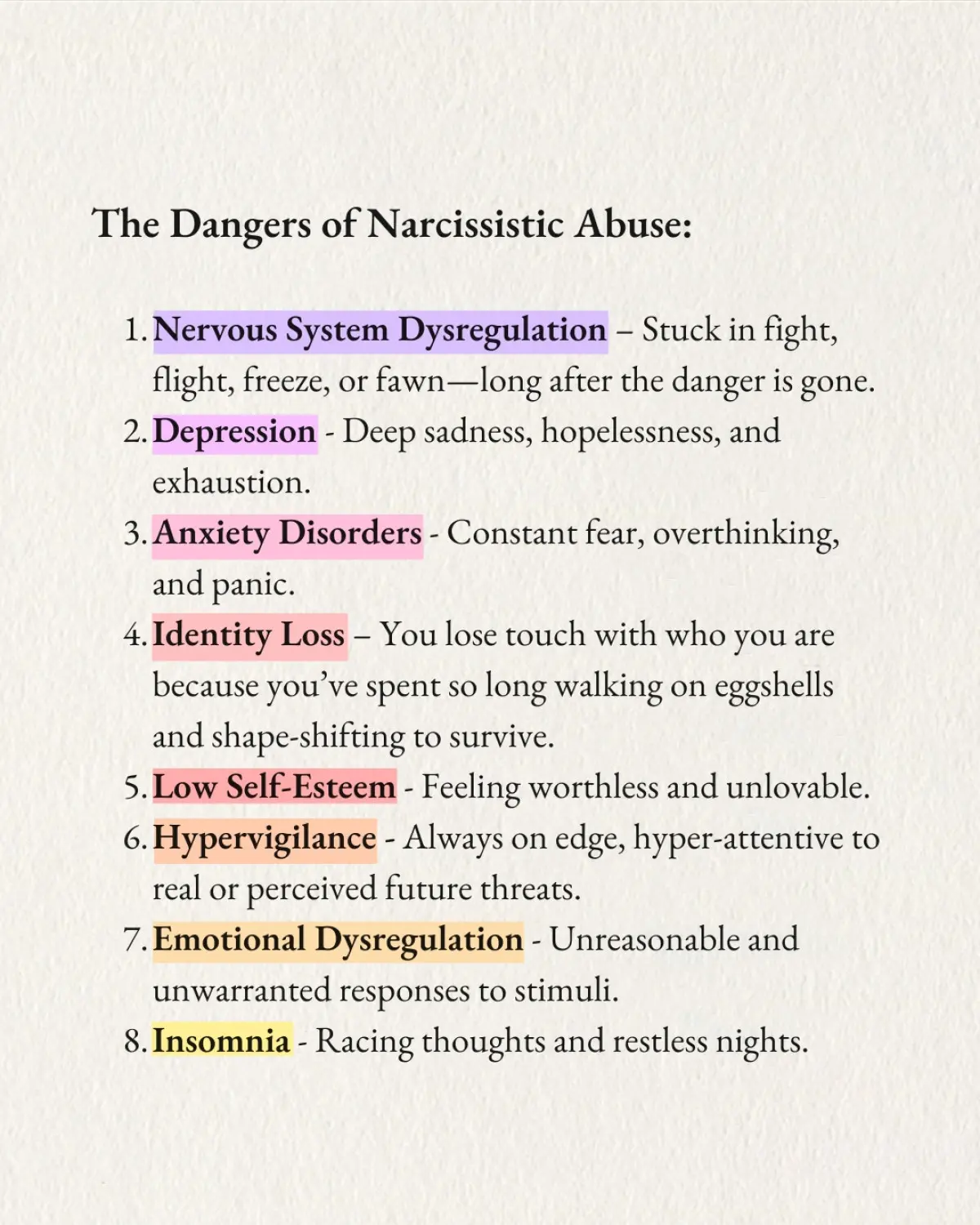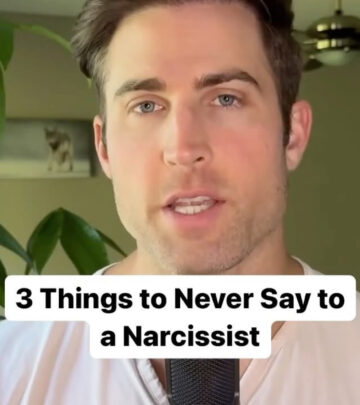Mental Illness From Narcissistic Abuse
Examining Narcissistic Abuse Impact on Mental Health, From Emotional Trauma to Insomnia & IQ

Image: Instagram
In today’s interconnected world, conversations around mental health are evolving, and one area that is gaining urgent attention is the impact of narcissistic abuse on mental well-being. Recently, celebrity advocate Brian Comstock (@brian.comstock) shared a detailed post that breaks down the toll such abuse can have, outlining a series of mental health challenges that survivors may experience. His post reminds us that the scars from narcissistic behavior run deep, influencing everything from emotional regulation to sleep patterns.
Understanding The Mental Toll
The post succinctly lists eight conditions that are reported to arise from prolonged narcissistic abuse:
1. C-PTSD – Chronic emotional trauma and anxiety are common among survivors who experience repeated emotional invalidation and manipulation.
2. Depression – Marked by a deep, persistent sadness, hopelessness, and exhaustion which can hinder day-to-day functioning.
3. Anxiety Disorders – A constant state of fear, overthinking, and panic, making it hard for individuals to trust their own judgments.
4. Dissociation – An often disruptive feeling of being detached from reality and even oneself, leading to issues in forming stable relationships.
5. Low Self-Esteem – A damaging sense of worthlessness and feeling unlovable, which can compound the effects of external abuse.
6. Hypervigilance – The constant expectation of danger even in safe environments, as survivors remain on edge from past experiences.
7. Emotional Dysregulation – Difficulty in controlling emotions, which can result in sudden outbursts or prolonged periods of numbness.
8. Insomnia – Racing thoughts and restless nights become a recurring theme, further affecting one’s ability to heal.
These points underscore a harsh reality: narcissistic abuse inflicts not only immediate emotional pain, but also long-term mental illnesses. The emphasis on conditions such as C-PTSD and dissociation highlights how deeply these experiences can alter a person’s perception of reality and self-worth.
Several mental health advocates on Instagram have been echoing these concerns. One influential post—which urges individuals to enforce firm boundaries—inspires survivors to recognize that continual forgiveness should never come at the cost of one’s peace. Another post reminds us that, while forgiving can be a powerful tool, it does not equate to accepting repeated mistreatment. The call to “cut the cord” resonates with many survivors who are trying to disentangle themselves from toxic cycles.
Pathways To Recovery
Recovery from narcissistic abuse is neither linear nor swift, but awareness is the first step. Brian Comstock’s post, along with other related insights on social media, highlights the importance of acknowledging both the psychological damage and the realistic avenues for healing. Many survivors report that establishing clear boundaries, seeking professional therapy, and connecting with supportive communities are key steps toward reclaiming their lives.
Mental health professionals suggest a multifaceted approach to recovery. First, understanding that conditions like emotional dysregulation or hypervigilance are not personal failings, but rather survival responses to abuse, can help ease the burden of self-blame. This perspective aligns with the message found in posts from several well-known voices in the mental health sphere. For instance, one influential Instagram update reminds its followers that some people do not deserve a second chance and underscores the value of self-compassion and setting uncompromising boundaries. The sentiment is clear: reclaiming one’s identity and self-worth is paramount, and sometimes, that means walking away from relationships that continue to cause harm.
The impact of these conditions often extends to every facet of a survivor’s life. The persistent anxiety and chronic insomnia described in the post not only hinder recovery but can end up undermining physical health, career performance, and the ability to form new, healthy relationships. In these cases, the integration of mindfulness practices and cognitive-behavioral therapy (CBT) is often recommended. Such evidence-based strategies are designed to help individuals manage negative thought patterns, reduce anxiety, and improve sleep quality.
Beyond individual efforts, there is a growing call for broader societal recognition of the damage wrought by narcissistic abuse. Public figures like Brian Comstock are using their platforms to spark conversation and encourage others to seek help. This movement is supported by a number of related Instagram posts, which assert that while understanding the effects of such abuse is painful, it is an essential step toward healing and empowerment. The dialogue is not just about identifying the symptoms—it is about understanding the underlying mechanisms of control and manipulation, and learning how to extricate oneself from these harmful cycles.
While the journey to healing is personal and often arduous, these insights are pivotal in validating the experiences of countless survivors. The narrative being built on platforms like Instagram is one of resilience: a call to recognize the patterns of abuse, to value one’s mental health, and to seek recovery with a support network that understands the burden of past trauma. As awareness grows, so does the hope that survivors will receive the validation and professional assistance necessary to fully recuperate from their injuries.
By bringing issues such as C-PTSD, depression, and insomnia into the public conversation, advocates not only reduce stigma but provide a roadmap for recovery. It is essential to remember that mental health recovery is not about a swift return to normalcy—it is about rebuilding a foundation of self-respect, trust, and emotional stability one step at a time. The conversations sparked by posts like these serve as a beacon for those looking for a way out of the emotional minefield of narcissistic abuse.
Read full bio of Nisha Bharatan



















